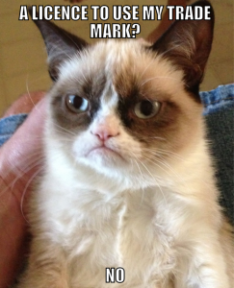I can haz memes in advertising?
 Who owns the copyright for memes and can advertisers make use of the internet trend? Solicitor Alison Eveleigh lays down the law in a piece that first appeared in Encore.
Who owns the copyright for memes and can advertisers make use of the internet trend? Solicitor Alison Eveleigh lays down the law in a piece that first appeared in Encore.
It’s safe to say that today, one does not simply read a funny meme and not share it with friends. The best memes are shared hundreds of thousands of times and have become a popular marketing tool for brands. For example, Virgin used the meme known as ‘Success Kid’ in a marketing campaign in the UK and everyone’s favourite ‘Grumpy Cat’ is now appearing in TV commercials for Friskies.
Brands are recognizing the power of memes to attract attention and facilitate engagement. The problem is that using memes for commercial purposes could violate intellectual property laws.
Several different people may hold intellectual property rights in a meme including:


As someone whose work went viral and was used in at least one media publication without credit, I stand with others who believe a culture of reward, attribution and payment (RAP) would benefit the ecosystem as a whole.
If you expect royalties from your meme, you’re gonna have a bad time.
As a business owner, I would never use anything in a advertisement that hadn’t been paid for. My business is a tiny start-up and even I know that. It’s copyright 101. Anyone who’s not paying license fees or is using content without paying for royalties can’t possibly claim ignorance any more (and even if they did, it’s no defence). Everyone needs to be smarter than that these days.